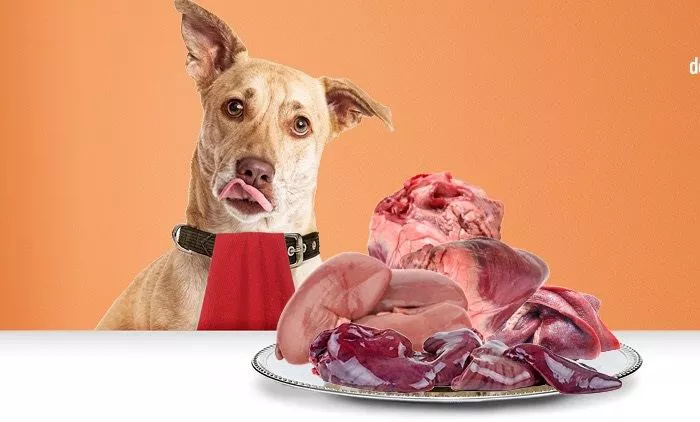Puppies need proper nutrition, especially during their critical growth stages. A 3kg puppy is in the early stages of development and needs a balanced diet to support its rapid growth, energy needs and overall health. In this article, I will provide detailed information on how much food a 3kg puppy should eat, including factors that affect feeding amount, food type, meal plan, and signs of proper nutrition. By the end, you will have a comprehensive understanding of how to effectively feed your 3kg puppy.
Understanding Your Puppy’s Nutritional Needs
Age and Growth Stage
The first factor to consider when determining how much food a 3 kg puppy should eat is its age and growth stage. Puppies go through various stages of growth, each with different nutritional requirements. For example, a newborn puppy will have different dietary needs compared to a 6-month-old puppy.
Newborn to 4 Weeks: During this stage, puppies rely solely on their mother’s milk. If you are fostering a newborn puppy without its mother, you may need to provide puppy milk replacer.
4 Weeks to 3 Months: Puppies begin to transition from milk to solid food. Start with soft, moist puppy food and gradually mix in more solid kibble as they get older.
3 Months to 1 Year: This is the rapid growth phase. Puppies need more calories and nutrients to support their development.
Activity Level
A puppy’s activity level affects its energy needs. A highly active puppy will require more calories than a sedentary one. Consider your puppy’s daily exercise routine and adjust its food intake accordingly.
Health Status
Health conditions such as parasites, infections, or genetic disorders can impact a puppy’s nutritional needs. If your puppy has a health issue, consult your veterinarian for specific dietary recommendations.
Calculating Daily Food Intake
Now, let’s dive into how much food a 3 kg puppy should eat daily. The general rule is to feed puppies between 2% and 4% of their body weight per day, divided into multiple meals. However, this is just a guideline, and individual puppies may vary.
Adjusting for Factors
Within this range, you will need to adjust based on the factors mentioned earlier:
Age: Younger puppies need more calories per pound of body weight than older puppies.
Breed and Size: Smaller breeds may need a higher percentage of their body weight in food due to their faster metabolism.
Activity Level: More active puppies require more calories.
Health Status: Puppies with health issues may need a specialized diet or adjusted calorie intake.
Scheduling Meals for a 3 kg Puppy
Feeding your puppy at regular intervals helps maintain its blood sugar levels and prevents binge eating. For a 3 kg puppy, here are some general guidelines for meal scheduling:
Frequency
Puppies generally need to eat more frequently than adult dogs because their stomachs are smaller and they have faster metabolisms. For a 3 kg puppy, aim to feed it 3 to 4 times a day.
Timing
Try to establish a routine by feeding your puppy at consistent times each day. This will help regulate its digestion and prevent it from becoming overly hungry or full.
Portion Sizes
Divide the total daily food intake into equal portions for each meal. For example, if your puppy needs 90 grams of food per day, feed it 30 grams at each of its three meals.
Common Mistakes in Feeding a 3 kg Puppy
As a dog trainer, I’ve seen many common mistakes when it comes to feeding puppies. Here are some to avoid:
Overfeeding
Overfeeding can lead to obesity, which can cause joint problems, respiratory issues, and a shortened lifespan. Follow the feeding guidelines on your puppy’s food packaging and adjust as needed based on your puppy’s weight and activity level.
Underfeeding
Underfeeding can result in malnutrition, which can stunt your puppy’s growth and development. Make sure your puppy is getting enough calories and nutrients to support its needs.
Free-Feeding
Free-feeding, or leaving food out for your puppy to eat whenever it wants, can lead to overeating and weight gain. Stick to scheduled meal times to help regulate your puppy’s appetite.
Not Reading Food Labels
Food labels can provide valuable information about the ingredients and nutritional content of your puppy’s food. Make sure to read them carefully and choose a food that meets your puppy’s specific needs.
Conclusion
To sum up, feeding a 3kg puppy requires reasonable control of its diet and attention to nutrition. You need to develop a specific diet plan based on your puppy’s age, weight, activity level, and health status, and pay close attention to its physical condition and diet. At the same time, you can also choose a high-protein, high-fat and nutrient-rich dog food as a staple food, and supplement it with an appropriate amount of homemade food and snacks to supplement the nutrients that puppies need. However, be aware that excessive intake of certain nutrients can also be harmful to puppies, so supplements should be taken in moderation and follow your veterinarian’s recommendations.
Related Topics:


